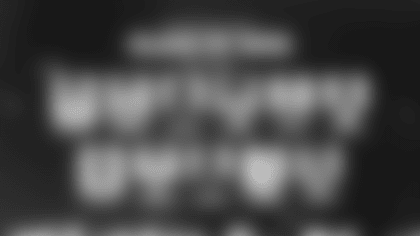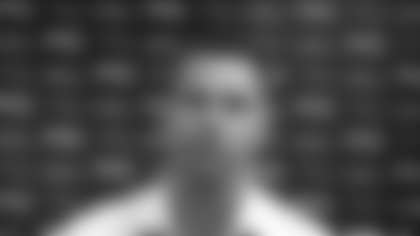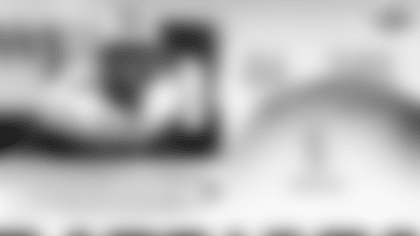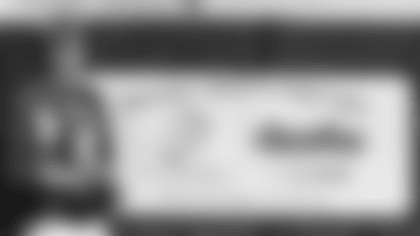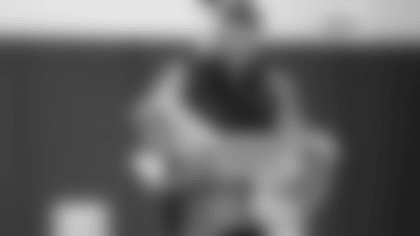Robert Kraft didn't have to go far from his hometown of Brookline, Mass. to expand his worldview.
Arriving at Harvard Business School at 22 years old, what stuck out most to the New England Patriots Chairman and CEO was the diverse mix of ideas that eventually helped shape his perception and change the trajectory of his life.
Growing up in a family of modest means, Kraft relied on scholarships and a fellowship to achieve his academic aspirations. He knows how important it is to give that same educational opportunity to others -- a mission he's been dedicated to for the past 50 years.
On Thursday, he and eldest son Jonathan Kraft returned to HBS to announce the establishment of a new Robert K. Kraft Family Fellowship Fund.
At $24 million, it is the largest endowed fellowship fund at HBS, and in recognition of the support, the school named the financial aid office in the Kraft family's honor.
"The one thing that was here that was special, that's different, is the case study method where you'll learn that there's no one answer; part of it is what you're about and how you look at the world and what kind of team you build around you," Kraft told Dean Srikant Datar at an HBS event where the announcement was made.
"This was one of the greatest experiences of my life."
During a conversation with Dean Datar before the Board of Dean's Advisors, fellowship donors, MBA students, and other members of the HBS community, Kraft relayed the story of how at a young age, an uncle put the idea of attending HBS into his head.
The lifelong dream came with apprehension, though. Kraft managed to attend Columbia for undergraduate studies thanks to an academic scholarship, and the same would have to be true at HBS.
"I always had that in the back of my mind, but I knew that financially, it would be out of reach," Kraft said.
"We didn't have a car in the family. I didn't have my first car until I was 25. And I used to ride my bike over here and just try to hang around and meet people. And I eventually was fortunate enough to meet (then-Assistant) Dean Richard Chapin, who worked in admissions. He was a great guy, and long story short, he must have felt bad for me. He granted me admission. What really made the difference was that I always thought this institution was out of reach. When I got this fellowship to come here it was one of those special days of my life."
Kraft's success after HBS would lead to more of those special days, many of which came thanks to his purchase of the Patriots in 1994. He knew overpaying for the franchise to keep it in New England only expanded his reach to give back to his community, including HBS.
"After we bought the team, one way to appease my sweetheart was telling her if we did a good job managing the team, we'd have a greater impact on the community than if we gave away a million dollars a week."
He kept his word. Now, Kraft's relationship with HBS has come full circle with Jonathan's involvement.
Robert was still working on his MBA when his oldest son was born, and he started taking Jonathan along to the special breakfasts he holds every year with his fellows when he was a junior in high school. Jonathan went on to graduate from HBS himself in 1990, and 10 years later, established his own fellowship fund.
"I'm so proud that Jonathan, on his own, he's continuing what we're doing," Kraft said of his son. "He grew up differently, but he still sees the value in it and what it does, overall, and the impact it makes."
With the newly created Robert K. Kraft Fellowship Fund, talented students unable to meet the cost of attendance will have access to the transformational educational experience HBS offers. Specifically, fellowships will be granted to students from lower socioeconomic backgrounds who are first-generation college students or from other underrepresented student backgrounds.
Odaro Omusi, a first-year student at HBS, came to the United States from Nigeria on scholarship and benefited from one of Kraft's fellowships.
"I really value gratitude, because I know my path has never been just my own," Omusi said. "There are a lot of other people who have been cheering me on or helping push me. So it was really awesome to meet him in person. What a great way to show gratitude. I do believe the best way to show gratitude is by giving to the people who come after us, and he's set a great example."
Omusi's point is one that Kraft is especially proud of, seeing his fellows go one to give back, and he offered another anecdote from one of his recent fellowship breakfasts.
"There was a young man, we had about 12 or 13 students, and he said that he would like to be connected to the Reform Alliance, which is a charity we helped start to change the parole system," Kraft said.
"I checked his curriculum vitae and I see both his parents were killed when he was five and he's been a foster child. Here he is at the HBS Breakfast getting one of our fellowships. And I thought, how cool is that? That this man, from that background, is able to have the same education that someone from an elitist background can have. He'll be a tremendous force to deal with."
Football is the ultimate team sport, with people from all backgrounds coming together to achieve a common goal. But that concept was realized long before Kraft bought the Patriots.
It was at HBS that he learned the importance of bringing people from all walks of life together, and he left those in attendance with some parting advice.
"I'm around too many people who play between the 40-yard-lines, and they want to be safe, and the real fulfillment comes by going for it -- whatever it is," Kraft said.
"Seeing the young people who come through here, there's a certain pride. The way I want people to feel great being associated with the Kraft Group, I feel about being associated with Harvard Business School. Not because of Harvard, but because of the business school, the kind of people that come through here and the kind of people that are connected here."






